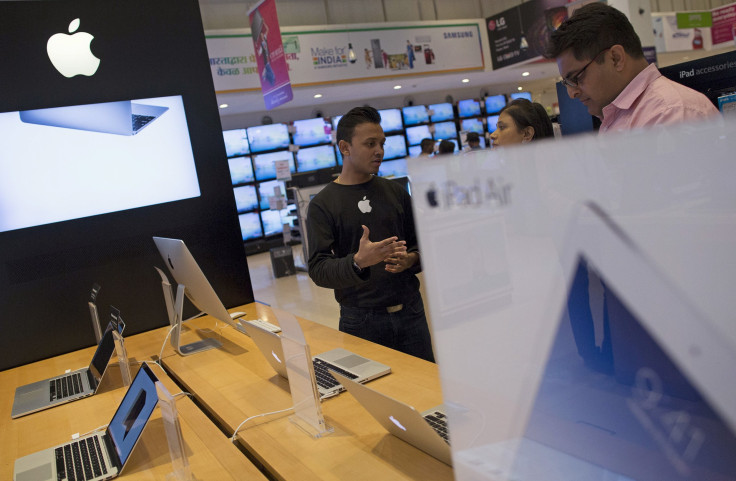Apple (AAPL) Stores Coming To India? New Foreign Investment Rules Make It Easier

The Indian government’s announcement Monday to ease regulations for foreign direct investment (FDI) in the country across various sectors gave a boost to the country’s stock markets, which had opened the day’s trade lower, affected negatively by the news of the imminent departure of the country’s central banker, Raghuram Rajan. But the most high-profile potential beneficiary of the new rules is not a company that is traded on Indian bourses; it is Apple Inc., the world’s highest-valued company.
The Cupertino, California, manufacturer of smartphones had lobbied hard for permission to open its retail stores in India, the world’s second-most populous country and Asia’s third-largest economy, with an increasingly affluent and large middle class. When Apple announced its first drop in quarterly revenue in 13 years last quarter, India was a bright spot where sales grew by 56 percent during the time.
CEO Tim Cook was in India in May, and during his meetings with Indian Prime Minister Narendra Modi and other ministers, he tried to push for two things: One, Apple be allowed to sell refurbished iPhones in India; two, the company be allowed to open its own retail stores in the country with an exemption from FDI rules that demand a foreign company opening retail stores under a single brand source 30 percent of its components locally.
The first demand was rejected by various ministries, while the second saw something of a tug of war between the Ministry of Finance on one hand and the Ministry of Commerce and Industry on the other. But the rules announced Monday have put that debate to rest, for the most part.
Under the new FDI policy, single-brand retail stores are exempt from the local sourcing mandate for up to three years, with no conditions attached, and in the case of products defined as ‘state-of-the-art’ or ‘cutting-edge’ technology, the waiver can be extended for another five years. However, there is little clarity on how those two terms that allow for exemption are defined, and if Apple decides to make a fresh application for opening its self-branded stories in India, the issue is likely to crop up again three years later.
As of now, Apple sells its products in India through authorized resellers, such as Redington India and the retail arms of Reliance and Tata, two of the country’s biggest business groups. Apple’s market share in the world’s fastest-growing large smartphone market is less than two percent, and the price of its products is cited as a major obstacle to growth in India.
Chinese electronics manufacturer LeEco has also been asking for the same exemption as Apple, and the new rules are likely to benefit it as well.
© Copyright IBTimes 2025. All rights reserved.





















